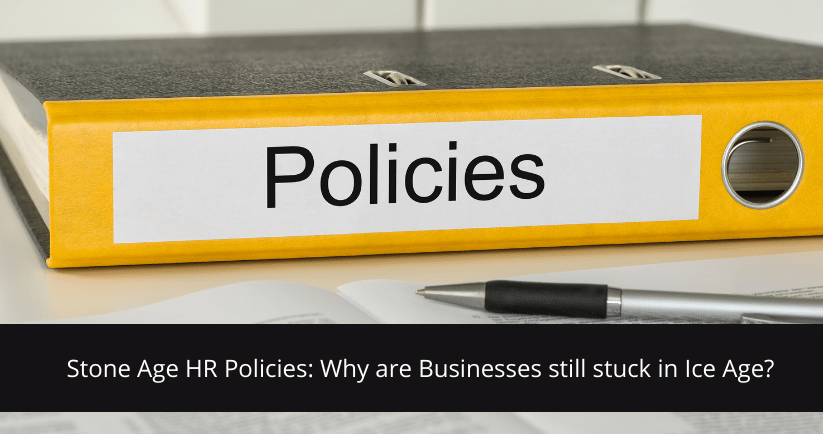Sounds harsh? The truth is that archaic or rather we should say stone age HR policies could turn even the best organisation into a business setting where not even the Neanderthals would be comfortable or love to work in.
Reason is that a number of businesses unfortunately enforce these HR policies for all the employees irrespective of personal characteristic or circumstance, which tends to affect the majority negatively. Now, when management treats the majority responsible people in the same manner as the marginal group, there is a good chance of not only losing the best talents, but would also curb the efforts of creating a high-octane workplace and team.
How to come out of the Dark Age?
Though setting clear and simple HR policies is crucial, outlining a simple HR policy can turn it inappropriate eventually causing distrust between employees and management. In addition, it not only hampers the trust factor, but is also one of the primary reasons for employee unhappiness besides curbing team morale leading to inefficiency and productivity issues.
Here are five ways HR department can easily update its policies and sneak out of the Dark Age:
1. Trust your employees with dress code
Your workplace dress code should be the last thing in your HR policy handbook even though it is the most visible workplace policy. Further, to ensure that it aligns well with your organisation’s core values and to make more room for the Millennial workforce, avoid dictating what your employees can wear with an extensive checklist entailing endless do’s and don’ts. Simply inform your employees that you expect them to dress decently and if a teammate fails to follow the suit, meet him/her in person and talk it out.
2. Shun those appalling sick leave practices
Surprisingly, several organisations still need a doctor’s note as a proof of sickness. This is certainly not a kindergarten, so trust your people. Good judgment and open communication is of great help here. Further, it is advisable to counsel sick employees about their circumstances, show concern to their needs and determine the number of day-offs they might require. Also, make the leave management system or process simple and swift.
3. Don’t tell your employees how to grieve
If requiring a medical proof of illness sounds inhumane, then you might be astounded to know that many organisations still require proof for a mourning leave. This particular policy besides spewing distrust devalues your people when they are at their most vulnerable phase of life. Firstly, you cannot judge whom your employees can mourn for and whom they can’t. The demise of a close friend may be quite harder for a person to come out of than that of his/her grandparent. Thus, ensure to handle each situation on a case-by-case basis with a caring and mature conversation.
4. Do not repeat the 10 commandments
Never devise or write rules that begin with “Employees are not permitted” ending with a horde of offending clauses that give out a feel that your employees are childish or foolish. A few examples of which are as follows:
Employees are not permitted to:
- Carry lethal weapons
- Carry drugs
- Falsify time cards, reports, etc.
- Threaten co-workers or customers
The list goes on and on. Instead, you ought to try something more open such as “We expect our employees to boast of a character that is in the best interests of the company and fellow colleagues and contribute to the organisation’s growth and success as a team.”
Takeaway
All the policy tweaks discussed above hold two common things i.e., each policy embraces and promotes positive presumptions about employees and distinguishes great HR leaders and business managers from the mediocre by leveraging their optimal best judgement for interpreting circumstances on case-by-case basis via open communication.
Incorporate these concepts in your HR policies to drive employee engagement and come out of the Dark Age to see the light.
For more such exciting HR leadership and workforce management advice, check out our blog here. You can also give us a shout-out at our Twitter and Facebook or write to us at sales@pockethrms.com








